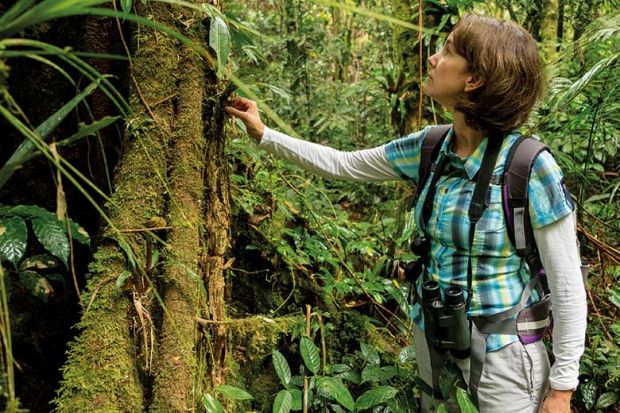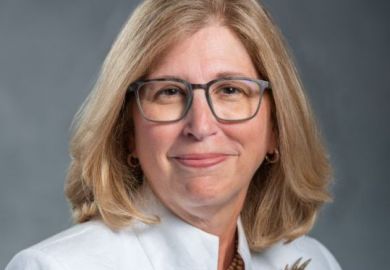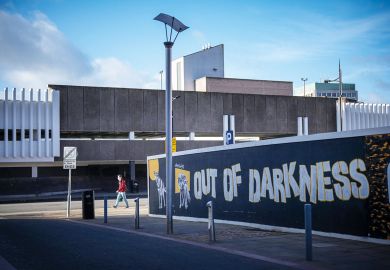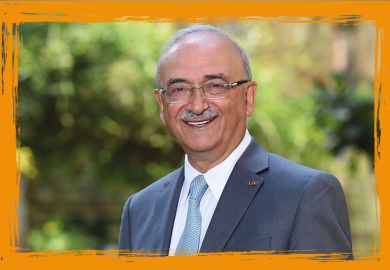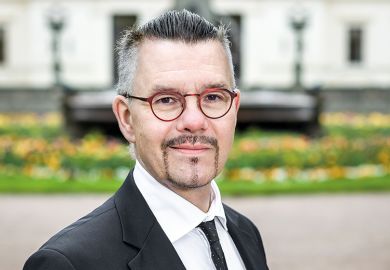Cristina Banks-Leite is a lecturer in the department of life sciences at Imperial College London. Having studied in her home country of Brazil, her research proposed a threshold of 30 per cent forest cover for effective restoration of its Atlantic Forest. In 2017, this figure was adopted as an official target by the Brazilian government. In recognition of this work, Dr Banks-Leite was recently named runner-up in the early career category of the Natural Environment Research Council’s 2018 Impact Awards.
Where and when were you born?
São Paulo, Brazil, in 1978.
How did it affect you to spend many weekends on a family farm in the rainforest?
Having access to nature made me less concerned about insects, snakes and other “less desirable” animals…It generally made me appreciate wildlife and ecological processes. I was also able to employ some of the knowledge I gained at school to better understand pollination, seed dispersal, soil processes and so forth. So it certainly directed me into becoming an ecologist.
What kind of undergraduate were you?
The kind who partied a lot and slept through most lectures, I’m afraid. I was also studious and so had good grades, but only in the subjects I enjoyed.
What was your most memorable moment at university?
I was doing an internship at a state park, as a first-year undergraduate. My colleague and I were carrying out mammal surveys. Then suddenly we found ourselves surrounded by a group of peccaries [pig-like mammals] and they were ready for attack. We ran faster than I thought possible. I’ve never felt so afraid – and so alive. On that same day driving back to the camp, we saw a puma crossing the road.
Why did you move to the UK to continue your work on the rainforests?
The first time I came to the UK was during my PhD. The Brazilian government gives scholarships to students who want to develop part of their theses in collaboration with academics abroad. I had collaborators from Cambridge and Imperial College London…I also met my now husband. It was the combination of being in a thriving academic setting and personal reasons that led to a permanent move to the UK.
Have you been able to build bridges between British and Brazilian universities?
Yes, I have. I can supervise postgraduate students at the University of São Paulo and I also occasionally teach there. Many of my collaborators are in Brazil, but I confess that collaboration is becoming harder. Seemingly harmless changes imposed on visas for students [in the UK] mean that I can’t receive students wanting to develop part of their PhDs with me any more. Funding is always an issue as well.
What led you to propose a 30 per cent threshold for forest cover for the Atlantic Forest?
This started during my PhD. I was part of a big group of researchers and our main goal was to understand how habitat loss and fragmentation affect species – and identifying a threshold was always our main desire.
How did you convince the Brazilian government to adopt your threshold?
The Ministry of the Environment in the past decade or so had very close connections with scientists, partly because many of my colleagues during my postgraduate years went on to work for the ministry. They had also set a very ambitious target for Brazil to restore 15 million hectares of forest and to stop deforestation by the mid-21st century. They needed to figure out a way to do that and my paper came at the right time, showing that restoration in some places would lead to better ecological outcomes (ie, biodiversity and water security) than in other places.
What did you feel when they decided to do so?
Chuffed – and slightly scared. I knew the results were very robust, but I still have nightmares about being wrong and destroying the Atlantic Forest!
What further initiatives are you trying to convince the government to take?
The most important step now would be to continue doing what the last government was doing. This is the major risk with the new presidency. Apart from that, it would be great to extend the Payment for Ecosystem Services scheme to give more financial stability to farmers and encourage them to increase the amount of [land they set aside].
What are the central themes of your current research?
Understanding why biodiversity is affected by environmental change and the consequences to the environment when species go extinct.
What are the main misconceptions people have about the rainforests?
They are not the Garden of Eden. You have to be constantly on the watch for snakes, mosquitoes carrying diseases, poachers…People commonly think that birds can just fly easily between parts of the forest, but they really can’t. Most birds I study cannot fly more than a few metres without needing to perch. If you put a large area of pasture between two patches of forest, they will not cross the open area.
What more should we be doing to preserve the rainforests?
Many governments around the world distrust scientists. I believe this is the greatest danger we are facing and until we turn that on its head we will face serious threats to rainforests.
Tell us about someone you’ve always admired
My grandad. He was a proper old-fashioned explorer who spent a good chunk of his life in the Pantanal and the Amazon.
What do you do for fun?
Currently? Playing Lego with my three-year-old.
If you were universities minister for a day, what policy would you immediately introduce?
A compulsory course for all adults where people (re)learn about why the scientific process is less flawed than checking things on Google…I would also increase the amount of science and particularly ecology throughout the school years. People are coming out of schools ignorant about the ecological crisis humanity is facing.
Matthew Reisz
Appointments
Donal Bradley has been appointed vice-president for research at King Abdullah University of Science and Technology. Professor Bradley will join the Saudi Arabian institution in April from the University of Oxford, where he is head of the Division of Mathematical, Physical and Life Sciences, and professor of engineering science. Prior to that he spent 15 years at Imperial College London, where he held a number of senior positions including vice-provost for research. Tony Chan, KAUST’s president, said that Professor Bradley had “extensive experience in research administration at a number of world-class institutions”. “I am confident that he will provide strong guidance and mentorship to our research community, and be a staunch advocate for R&D efforts campus wide,” Professor Chan said.
David FitzPatrick has been appointed the first president of Technological University Dublin, a merger of the Dublin Institute of Technology, IT Tallaght and IT Blanchardstown. His term began when TU Dublin, Ireland’s first technological university, was formally established on 1 January. His appointment comes after a spell as dean of engineering at University College Dublin and principal of its College of Engineering and Architecture. Ireland’s minister for higher education, Mary Mitchell O’Connor, said that Professor FitzPatrick’s “huge experience and expertise in the higher education sector” made him the perfect candidate to “drive TU Dublin’s mission for technological excellence, research, knowledge transfer and regional development”.
Robert Trimble has been appointed pro vice-chancellor with responsibility for academic matters at the University of Cumbria. He will join Cumbria in February from the University of Sunderland, where he is pro-vice-chancellor (education and student experience).
André Buret has been appointed interim vice-president (research) at the University of Calgary. His appointment comes after the announcement in November that the former holder of the position, Ed McCauley, would become the new president and vice-chancellor of the university in 2019.
Nathan Green has been named vice-chancellor for public affairs at Vanderbilt University, having served in the role in an interim capacity since February 2017.
Register to continue
Why register?
- Registration is free and only takes a moment
- Once registered, you can read 3 articles a month
- Sign up for our newsletter
Subscribe
Or subscribe for unlimited access to:
- Unlimited access to news, views, insights & reviews
- Digital editions
- Digital access to THE’s university and college rankings analysis
Already registered or a current subscriber? Login
